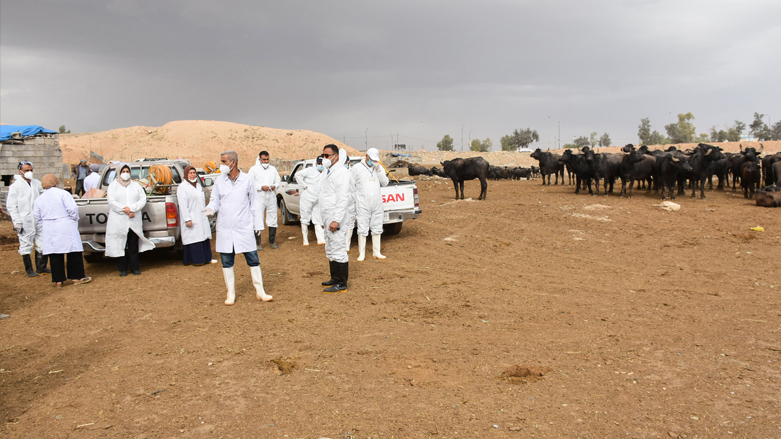Crimean-Congo cases in Iraq increases to 155
Most of those that test positive for the virus are butchers or livestock breeders in the country, according to health officials.

ERBIL (Kurdistan 24) – The number of recorded cases of the Crimean-Congo hemorrhagic fever in Iraq has risen to 155 since the beginning of the year, according to the latest tallies from the country’s health ministry on Thursday.
While the number of cases of the contagious virus has markedly risen, the death toll still stands at 26, the spokesperson for the Iraqi Health Ministry, Saif Al-Badr, told the Iraqi News Agency.
The fatality rate of the Crimean-Congo fever is as high as 40 percent. Furthermore, there is no known cure or vaccine for the infectious disease.
Most of those that test positive for the virus are butchers or livestock breeders in the country, according to health officials.
Crimean-Congo fever is one of the viral hemorrhagic fevers (VHF) that’s transmissible via tick bites from animals to animals or animals to human being.
Following the incubation period – which is usually five to six days – a patient typically experiences a range of symptoms, including internal and external bleeding accompanied by high fever.
Nasiriyah, the capital of Dhi Qar province, is the hardest hit by the virus, Al-Badr said last week. He did not elaborate on why the virus is spreading so rapidly in that particular southern Iraqi city.
Iraq has recorded cases of the Crimean-Congo virus in previous years as well. However, the surge in cases witnessed year has caused concerns.
The World Health Organization (WHO) believes that one reason for this surge is a result of the lack of livestock spraying in the past two years in Iraq because of measures taken against COVID-19, WHO Representative in Iraq Ahmed Zouiten recently told AFP.
